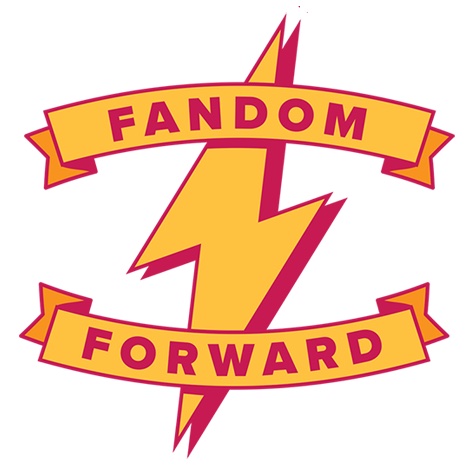Back in the 1990s, I noticed online communities of fans for the X-Files, Xena, Buffy: the Vampire Slayer, other TV shows and various entertainers and sports teams engaging in volunteering, activism and philanthropy. It was more than virtual volunteering: it was the creation of intentional communities, where fans used their passion and sense of fellowship to support a variety of good causes. I noted that many of these online groups weren’t directed by any formal organization to engage in philanthropy; the fans decided to engage in these activities on their own.
I wrote and published an online article about it in July 1999: Fan-Based Online Groups Use the Internet to Make a Difference. My article includes examples of such groups at that time, with comments from members regarding their online philanthropic activities and what makes them successful.
That DIY fandom-for-good spirit has continued online, and I’ve paid attention to one of those more recent efforts in particular: The Harry Potter Alliance. The HPA has raised money for various causes and lead campaigns to create awareness about hunger, bullying, child slavery and more. The group also has the Granger Leadership Academy, named for the Harry Potter character Hermione Granger, and the Wizard Activist School, which create programming and workshops aimed to inspire and train members in a variety of topics, including feminism, environmental issues, fighting racism, social justice, conflict resolution, leadership styles, goal-setting, and on and on.
We founded the HPA in 2005 with a simple idea: what if fans used their passion and creativity to make activism more fun and the world a more loving, equitable place? For almost sixteen years that idea has driven hundreds of thousands of fan activists to organize protests and charity drives, to write letters and make calls, to donate books and time and money to make their communities better for all.
The Harry Potter Alliance is changing its name to Fandom Forward, and it’s now for fans of Avatar, Star Wars, Percy Jackson, Doctor Who, Marvel, DC and, of course, Harry Potter – and most everything else out there in the sci-fi / fantasy / superhero world. Its purpose is to turn fans into “heroes.”
We use the power of story and popular culture to make activism accessible and sustainable. Through experiential training and real life campaigns, we develop compassionate, skillful leaders who learn to approach our world’s problems with joy, creativity, and commitment to equity.
As it became more and more clear that our community had grown even bigger than the boy who lived, we started talking to friends from all corners of fan organizing about how to move forward together. We talked to you, our community members, about what you wanted to see next. Over 1,000 of you weighed in, and the answer was overwhelmingly consistent: this place we’ve built? It doesn’t belong to just one fandom. It’s for anyone who believes in the power of stories and fans to change the world. It’s for everyone, and our name should reflect that.
Fandom Forward even offers its own virtual volunteering management guide. My favorite advice from the guide is section 4, on cultivating leadership among volunteers. The entire section is terrific. I like this especially:
Default to trusting volunteers. This is a big one, and something that is hard for a lot of people to grasp. After doing this for 15+ years, however, we whole-heartedly believe in the idea that you can and should default to trusting your volunteers. Of course, this doesn’t mean you should give anyone access to your organization’s most sensitive information. But if you have a task that needs to be done that involves giving a volunteer an organizational log-in to a website, give it a try! We’ve found that most people can be trusted. If anything goes wrong, you simply remove the volunteer from that task or the organization. However, most times it will go right.
I’m fascinated by this and other fan-based efforts for many reasons: because I’m a fan myself of many of these stories, because I love seeing the Internet used for good, because there are frequent stories and studies claiming that there is a decline in young people wanting to volunteer – stories and studies that ignore these efforts – and because of complaints that younger generations aren’t joining traditional civic groups like Rotary, Optimist, Lion’s, etc. I’ve said it before, I’ll say it again: younger generations ARE volunteering, ARE getting involved in their communities – but they are doing it in different ways. Maybe the local civic group didn’t bother to create any social media channels to talk about their work, haven’t updated their web site in years, and have spent more time complaining about declining numbers than trying to do an honest assessment of why that is happening. Maybe the local fire station makes it clear that only career first responders are the superheroes and volunteers are just there to roll hoses and serve coffee, or doesn’t make it crystal clear how a person would become a volunteer first responder. Maybe these groups need to pay more attention to Harry Potter fans.

If you have benefited from this blog or other parts of my web site or my YouTube videos and would like to support the time that went into researching information, developing material, preparing articles, updating pages, etc. (I receive no funding for this work), here is how you can help.


